Use the tabs below to navigate through the different tense endings of the Latin first conjugation in the active voice and indicative mood.
Examples:
amo, amare, amavi, amatum (to love)
The present, future, and imperfect tenses of the first conjugation are formed by removing the -re from the infinitive of the verb, and then adding the ending.
Applying this to amare, we end up with “ama-” as our stem. Once we add the respective tense endings, we will have a fully conjugated verb.
| Singular | Plural | |
| 1st person | amo (present, I love) amabo (future, I will love) amabam (imperfect, I was loving) | amamus (we love) amabimus (we will love) amabamus (we were loving) |
| 2nd person | amas (you love) amabis (you will love) amabas (you were loving) | amatis (you (pl.) love) amabitis (you (pl.) will love) amabatis (you (pl.) were loving) |
| 3rd person | amat (he/she/it loves) amabit (he/she/it will love) amabat (he/she/it was loving) | amant (they love) amabunt (they will love) amabant (they were loving) |
To form the perfect, pluperfect, and future perfect tenses, you need to remove the -i ending from the 3rd principle part of the verb (which is the first person singular conjugation in the perfect tense), and then replace it with the ending you need.
Let’s try this one, with amare. Amavi is the 3rd principle part. Removing the -i from that principle part, we know that our stem is “amav-.” Now, all we need to do is add the tense endings onto the stem.
| Singular | Plural | |
| 1st person | amavi (perfect, I loved) amaveram (pluperfect, I had loved) amavero (future perfect, I will have loved) | amavimus (we loved) amaveramus (we had loved) amaverimus (we will have loved) |
| 2nd person | amavisti (you loved) amaveras (you had loved) amaveris (you will have loved) | amavitis (you (pl.) loved) amaveratis (you (pl.) had loved) amaveritis (you (pl.) will have loved) |
| 3rd person | amavit (he/she/it loved) amaverat (he/she/it had loved) amaverit (he/she/it will have loved) | amaverunt (they loved) amaverant (they had loved) amaverint (they will have loved) |
If you now want to check out noun declensions, we have an article on the five of them at https://togatutor.com/declensions
Questions, concerns, or suggestions for other articles/guides? Email [email protected] or leave a comment on this post!





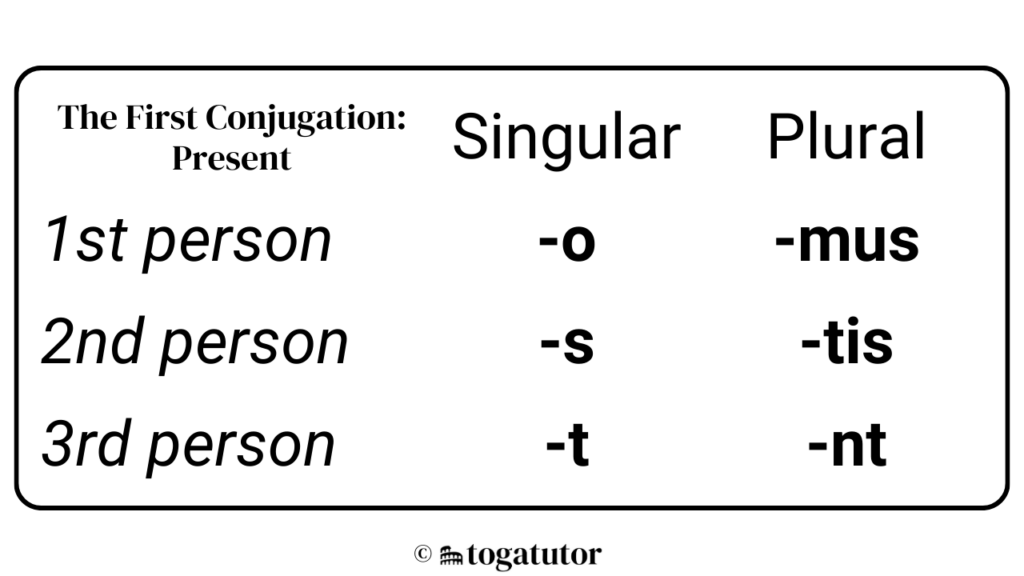
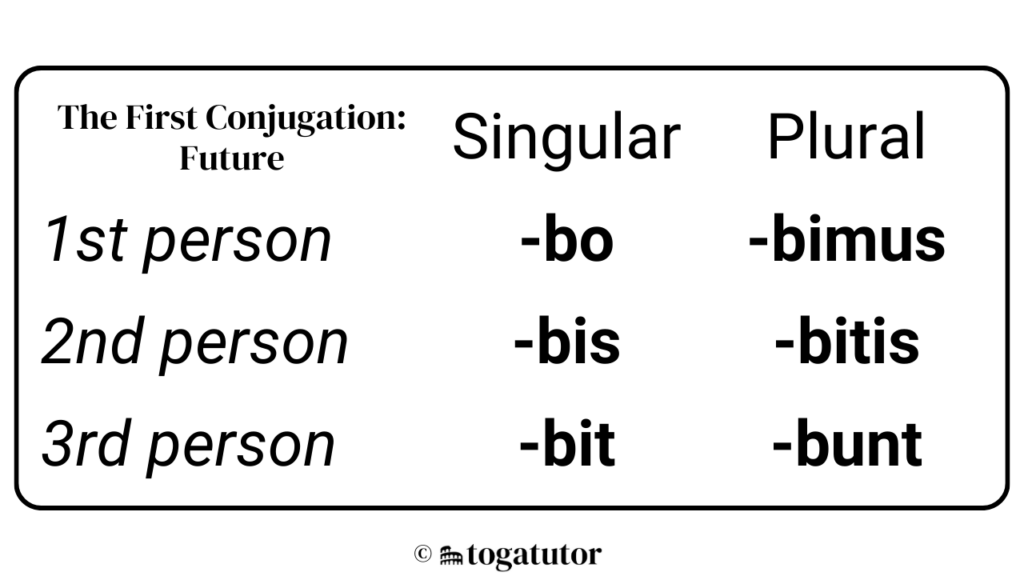
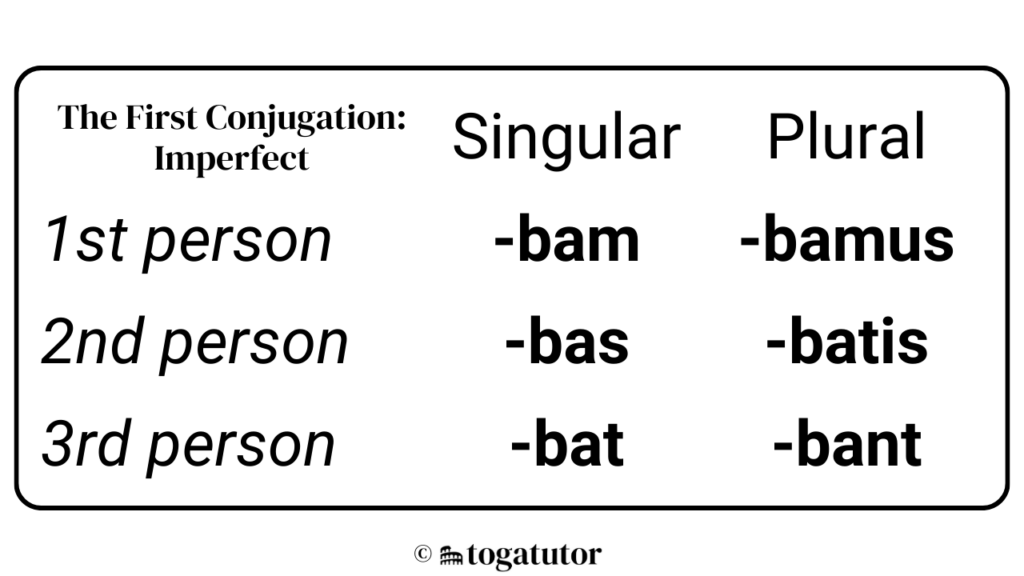

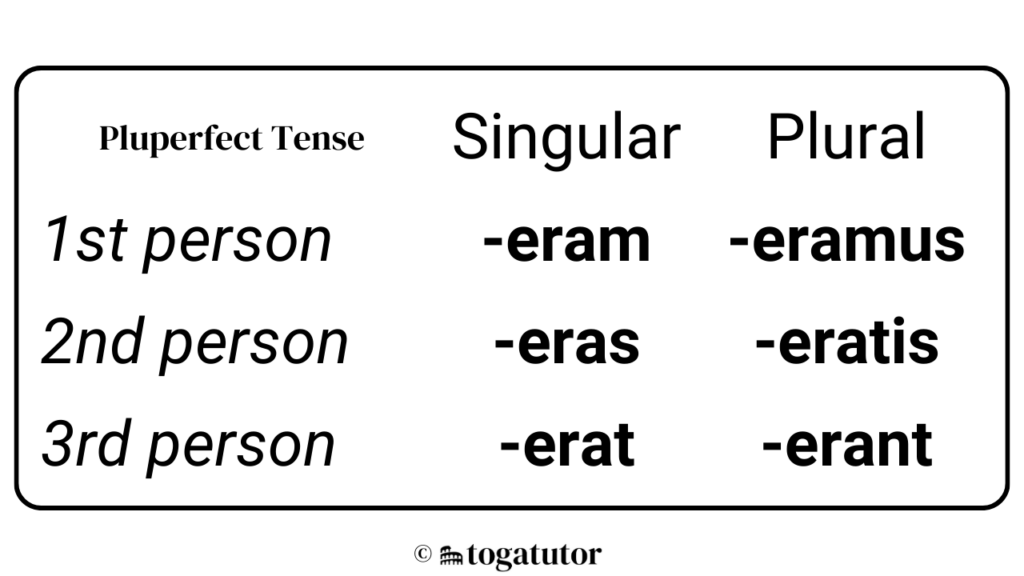
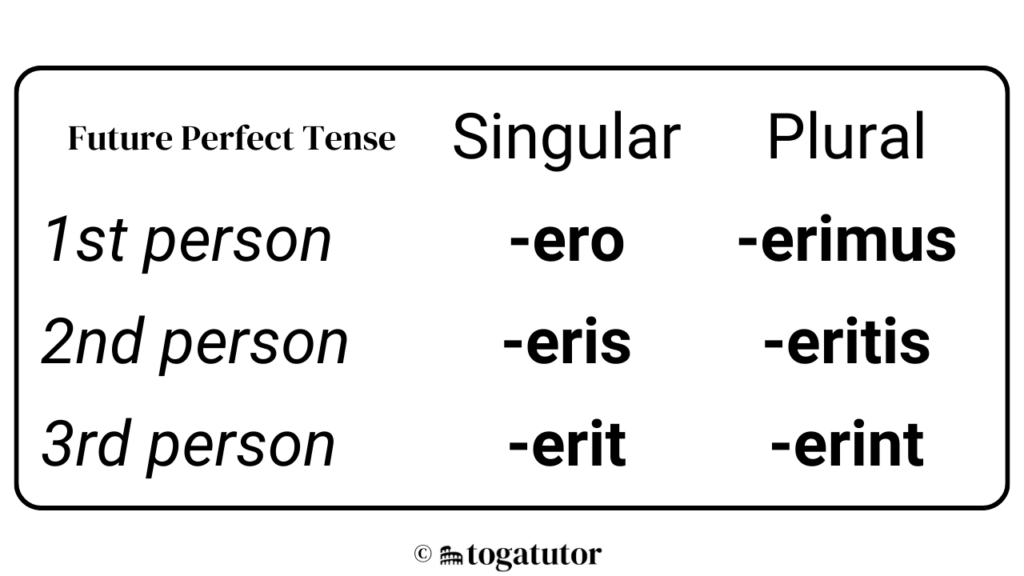
Leave a Reply